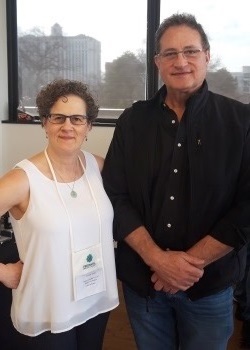Você está aqui
Stem Cell Therapy for Autism at the Panama Stem Cell Institute
 Many parents today are seeking stem cell therapy for a child with autism at the Stem Cell Institute located in downtown Panama City. The Panama Stem Cell Institute was founded by Neil Riordan PA PhD. Dr. Riordan is also involved with several other companies in the field of regenerative medicine.
Many parents today are seeking stem cell therapy for a child with autism at the Stem Cell Institute located in downtown Panama City. The Panama Stem Cell Institute was founded by Neil Riordan PA PhD. Dr. Riordan is also involved with several other companies in the field of regenerative medicine.
The popularity of the Stem Cell Institute in Panama arises from several factors. The clinic provides therapies using specially screened and processed mesenchymal stem cells (MSC) sourced from umbilical cord (UC) tissue that has been donated after normal, healthy births. These UC-MSC can safely be given to patients without any “matching” to the donor. Since the Stem Cell Institute does not use cord blood, parents do not have to worry about whether they banked cord blood for their children, whether the cord blood they banked is viable, or how to ship the cord blood to Panama. Once accepted and scheduled for treatment, the family travels to Panama and the clinic provides the stem cells. Both the clinic and accompanying laboratory in Panama are fully licensed by the national medical authorities and adhere to international standards. Parents can feel confident that the therapy is legal, the stem cells are sourced and prepared in an affiliated laboratory, and the clinic is highly experienced. The waiting list at Panama is only a few months, which is important to parents who want to try stem cell therapy while their child’s brain is still developing.
The Stem Cell Institute provides families with a comprehensive five-day package that includes expedited customs clearance and a hotel room at the Hilton, which is connected to the clinic’s office tower. The price ranges from around $13,000 to $18,000 depending on the child’s weight. For children with autism, the first day of the treatment, a Monday, is dedicated to intake testing. On days Tuesday through Friday, the child receives daily intravenous infusions of stem cells suspended in sterile solution. The four infusions deliver a total dosage of 40 to 80 million UC-MSC, depending on the child’s weight.
The safety profile of the Panama Stem Cell Institute is well established. Since the clinic opened in 2006, they have performed over 10,000 procedures, and currently they are treating up to 200 patients per month. A patient registry safety review performed over nine months in 2018 found 497 adverse events (AE) out of 3058 treatments administered, which is a rate of 16.2%. The vast majority of AE (15.8%) were mild symptoms, consisting of fatigue and headache. The worst AE, consisting of nausea and vomiting, were only reported by 0.13% of patients.
A clinical trial for autism, registered by the clinic in 2014, has been completed with 20 participants. A paper has been submitted to a peer-reviewed medical journal. In the final paper, outcomes were measured using Autism Treatment Evaluation Checklist (ATEC) scores, Childhood Autism Rating Scale (CARS) scores, macrophage-derived chemokine (MDC) levels and activation-regulated chemokine (TARC) levels recorded at baseline and again at 13 weeks, 25 weeks, 37 weeks, 49 weeks, and 89 weeks post-therapy.
At the Perinatal Stem Cell Society meeting, Dr. Riordan presented data on 47 autism patients selected from the clinic patient registry. Among these patients, 87% were boys, the median patient age was 7 years old, and the daily dose averaged 15.75 million UC-MSC. For these patients, ATEC scores were compared at baseline and six months. The scores showed improvements in the categories of speech, sociability, awareness, and behavior; and all of the improvements had high statistical significance.
Parents contemplating autism therapy at Panama are encouraged to rule out other conditions that can cause autism symptoms, such as genetic disorders and heavy metal poisoning. Normal blood test readings for heavy metals are mandatory before enrolling for therapy.
Parents wishing to learn more about autism therapy at the Stem Cell Institute in Panama can visit the autism treatment page on the clinic website. There is also a Facebook group, Stem Cell Therapy for Autism, which is run by parents for parents as a forum to share experiences with stem cell therapy.


